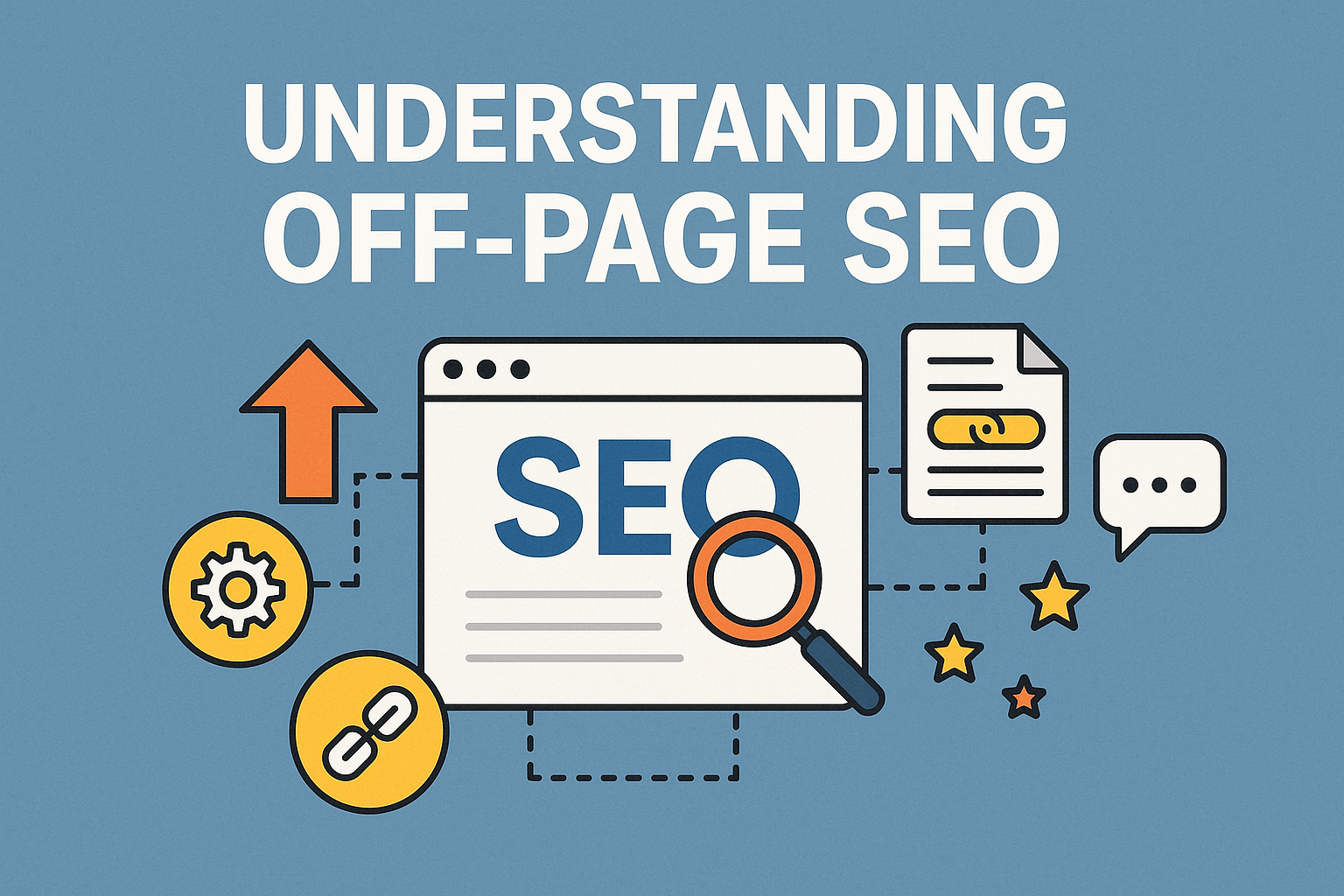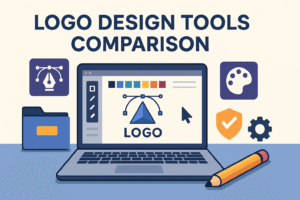Understanding Off-page SEO
What is Off-page SEO?
Off-page SEO refers to optimization activities outside your website that influence your search rankings.
The goal is to increase your site’s trustworthiness and authority through backlinks, brand mentions, social signals, and other external references.
Unlike on-page SEO, which includes elements like titles, meta tags, and internal linking, off-page SEO operates externally.
Backlinks are the most critical factor. When authoritative websites link to yours, search engines treat it as a signal of credibility.
Other components include:
- Brand mentions on forums or articles
- Social shares across platforms
- Guest posting on reputable sites
Off-page SEO builds digital reputation. The more trusted your site appears, the more likely it is to rank well.
Google uses signals like link quantity, diversity, and relevance to judge authority.
Effective off-page SEO helps your content perform better in SERPs even when your on-page efforts are already strong.
Why Off-page SEO Matters for Rankings
Off-page SEO is a major ranking factor in Google’s algorithm.
Backlinks remain a key trust signal. A single link from a reputable source can carry more weight than dozens from lower-quality sites.
Search engines assess:
- Who links to you
- How often you’re mentioned
- What people say about your brand
High-quality backlinks indicate your content is valuable.
Social proof—likes, shares, and comments—also reinforces relevance and trustworthiness.
Brand authority grows as other platforms reference your site.
Good off-page SEO:
- Boosts rankings
- Increases organic traffic
- Strengthens domain authority
Neglecting it limits your ability to compete, especially in crowded industries.
Even with perfect on-page SEO, a lack of external signals can hold your site back.
Key Off-page SEO Techniques
Link Building
Link building is the foundation of off-page SEO.
You earn links by creating valuable, shareable content or forming partnerships with trusted sites.
Tactics include:
- Guest posting on industry blogs
- Broken link building (finding and replacing dead links)
- Resource link building (getting featured in curated lists)
Focus on:
- Relevance: Links from related topics or industries
- Authority: Sites with strong domain ratings
- Diversity: A healthy mix of sources and anchor text
Avoid spammy links. Google penalizes manipulative tactics.
Invest time in building genuine relationships that lead to natural backlinks.
A steady growth of inbound links signals ongoing value to search engines.
Social Media Signals
While not direct ranking factors, social media signals amplify reach.
Content that’s widely shared has a higher chance of gaining backlinks and visibility.
Engagement metrics:
- Likes
- Shares
- Comments
These contribute to:
- Increased brand awareness
- More website traffic
- Opportunities for backlinks from blogs and media
Stay active on platforms where your audience engages. Share blog posts, videos, infographics, and case studies.
Consistent activity reinforces your brand’s relevance in its niche.
Influencer Outreach
Influencers can expose your brand to broader, relevant audiences.
Engage with:
- Bloggers
- Podcasters
- YouTubers
- Niche social media personalities
Steps:
- Identify those aligned with your brand
- Offer value (collaborations, free access, etc.)
- Build long-term connections, not one-off promotions
Influencer mentions can:
- Drive traffic
- Boost credibility
- Lead to backlinks
This human-driven approach is especially powerful for reaching new audiences and building organic authority.
Off-page vs On-page SEO
Both types are essential but serve different purposes.
On-page SEO improves your site’s structure and content.
Off-page SEO builds external trust and reputation.
Comparison:
| On-page SEO | Off-page SEO |
| Titles & meta tags | Backlinks |
| Content quality | Brand mentions |
| Internal links | Social media signals |
| Site speed & UX | Influencer outreach |
Together, they form a complete SEO strategy. Ignoring one limits the full potential of the other.
Measuring Off-page SEO Success
Track key performance indicators (KPIs) to evaluate your off-page efforts.
Important metrics:
- Number of referring domains
- Domain Rating (DR) or Domain Authority (DA)
- Traffic from referral sources
- Backlink growth over time
- Mentions across the web
Use tools like:
- Ahrefs
- SEMrush
- Google Search Console
Monitor not just quantity, but link quality. A few high-authority links often outweigh dozens of low-quality ones.
Regular audits help identify toxic backlinks or lost links. Remove harmful ones and reclaim lost authority.
Final Thoughts and Best Practices
Off-page SEO is not about shortcuts or hacks. It’s about building real authority and trust.
Best practices:
- Focus on earning links, not buying them
- Promote useful content regularly
- Foster genuine relationships in your industry
- Avoid black-hat link schemes
- Stay consistent—SEO takes time
The web respects value. If you provide it, off-page SEO will follow.



